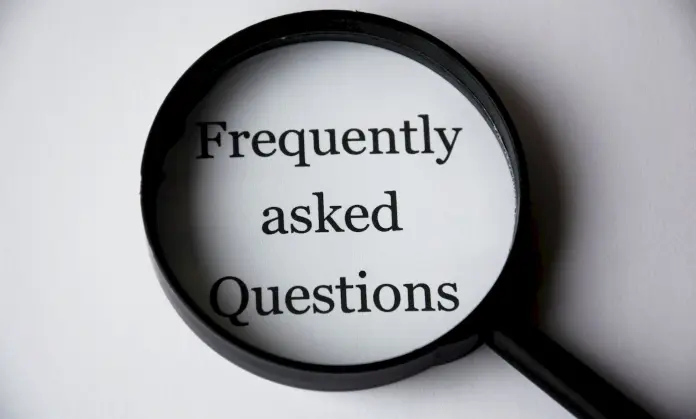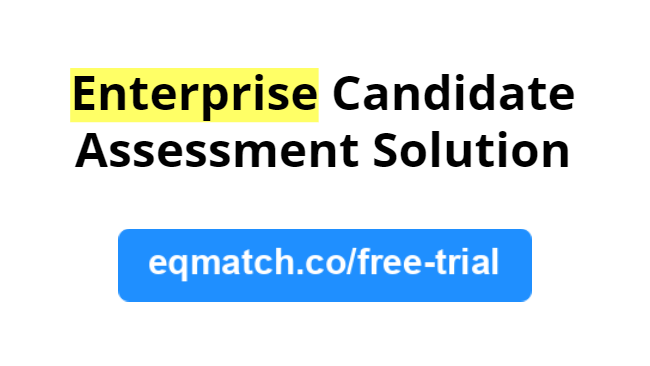Employee assessments are like report cards for grown-ups at work.
They help managers and leaders assess your skills and performance.
But that is not all.
Employee assessment tools highlight areas of growth and opportunities.
Before we dive into the best employee assessment tools, let’s talk a little about the evolution of employee assessment.
Evolution of Employee Assessment
How we look at workers has changed a lot over the years. It’s not just about counting the hours you work anymore.
It used to be all about how many hours an employee puts in. Now, it’s more about what employees achieve and how they fit in with the team.
Types of Assessment Tools
Broadly speaking, there are two types of employee assessment tools- pre-employment assessment tools and assessments for existing employees.
Pre-employment assessment tools help HR managers and recruiters shortlist the right candidates for specific jobs.
Let’s look at the most popular recruitment assessment tools.

The Best Employee Assessment Tools
Harver
What is the Harver assessment?
The Harver assessment is an AI-driven pre-employment assessment platform that evaluates candidates through various tests, including cognitive, emotional, and skills assessments.
Harver pre-employment assessment helps HR managers hire better without bias toward the candidates.
The assessment promised to increase the quality of hire, reduce time-to-hire, and drive engagement and retention.
For these reasons, Harver is on our list of the best employee assessment tools.
The Good
- Harver offers pre-set profiles and interview questions
The Bad
- Complex integrations, too many steps for new assessments.
- Limited reporting and analytics.
- Unclear descriptions for reasoning types.
Adaface
Adaface offers 40-minute skill tests to automate the first round of screening.
They offer a variety of tests for coding, aptitude, psychometric, personality tests, and more.
The Good
- Wide range of questions
- Good User Interface
The Bad
- Limited Customization Options
- Not the easiest test environment
EQMatch
Next on our list of the best employee assessment tools is the EQMatch Assessment.
Unlike all other tools in this list, the EQMatch Emotional Intelligence Assessment can be used both for pre-employment screening and for existing employees.
This enterprise-ready emotional intelligence solution is one of the only objective assessments out there.
EQMatch is one of the leading free pre-employment assessment tools today.
Check this post on the best emotional intelligence assessments to understand how EQMatch compares to other leading EI Assessments such as the Myers Briggs, and DISC assessments.
Another thing to note is that EQMatch offers transparent pricing.
The Good
- EQMatch is one of the leading objective EQ assessments.
- Scientific Assessment
- Detailed Report on EQ
The Bad
- Can be time-consuming (takes 20 minutes) for some users.
iMocha
iMocha stands for Interview Mocha.
This pre-employment skill assessment offers more than 1500 employee skills assessments.
Per their website, they offer assessments for 2500+ skills.
The Good
- Has more than 2,500 skills assessments
- Offers multiple languages
The Bad
- Grammatical Errors in some assessments
Modern Hire (HireVue)
This all-in-one hiring platform leverages science and AI (Artificial Intelligence) to predict the best performance.
This company was recently acquired by HireVue.
The Good
- Offers decent tools for screening and evaluating candidates
The Bad
- Data Security issues
- Poor Interface
Limited customization in outgoing templates
Vervoe
Vervoe is an AI-powered job simulation platform.
Their machine learning AI helps grade and rank candidates quickly.
The Good
- Contains more than 300 assessment templates and job simulation
The Bad
- Does not offer cognitive and personality tests
Other Employee Assessments
Some other employee assessment tools include ThriveMap, SkillSurvey, Wonderlic, Test Invite, TestGorilla, QuizCV, Qualified, and ProProfs.
Why Should HR Managers Use Employee Assessment Tools?
The Human Psychology
We all have a tendency to show ourselves in the best light.
As per SHRM, 36% of job applicants openly admit to lying on their resumes.
A pre-employment assessment tool can help the hiring manager address this to a great extent.
Smoother Hiring Process
HR managers have to sort through hundreds of job applications.
On average, each job post receives over 250 applicants (GlassDoor).
A pre-employment assessment tool can help save time and energy in this context.
Lower Turnover Rate
Research shows that organizations leveraging pre-employment assessment tools report a 39% lower turnover rate.
Reduce Cost and & Time Per Hire
It is a no-brainer that using the right employee assessment tools can save HR managers time.
And this time savings results in reduced cost per hire.

How To Use Pre-Employment Assessment Tools?
Employee Assessment Tools can help organizations make informed decisions about potential hires.
These tools go beyond resumes and interviews.
They provide a deeper understanding of a candidate’s skills, personality, and potential fit within the company culture.
Here are some things you can do to make the most of these tools.
Define Your Needs
Before selecting any assessment tool, clearly outline the skills, traits, and qualifications you’re seeking in a candidate.
This will help you choose the right assessment that aligns with your hiring goals.
Select the Right Assessment
There are dozens of employee assessment tools out there- aptitude tests, personality assessments, and skills tests.
Choose the one that best matches your job requirements and the specific traits you’re looking for.
Integrate Assessments Into Your Process
Determine when in the hiring process to administer assessments.
Some organizations use them as an initial screening step, while others incorporate them after the initial interview.
Make sure the timing is appropriate for your needs.
Inform Candidates
Be transparent with candidates about the assessment process.
Explain the purpose of the assessment and assure them that it’s a standard part of your hiring procedure.
This reduces anxiety and ensures a fair evaluation.
Use Employee Assessments Tools Fairly
Ensure that all candidates receive the same assessment under the same conditions.
This minimizes bias and maintains fairness throughout the hiring process.
Review and Analyze Results
After candidates complete the assessments, review the results carefully.
Look for patterns and insights that align with your hiring criteria.
Consider assessment results alongside other hiring factors, such as resumes, interviews, and reference checks.
A holistic view of a candidate’s qualifications is essential.
Tailor Interviews
Use assessment results to guide your interview questions. This allows you to explore specific areas of interest or concern.
Continuously Improve
Regularly evaluate the effectiveness of your assessment tools and adjust them as necessary.
You want your assessments to adapt to your evolving hiring needs.
Legal Compliance
Not all assessment tools are created alike.
The best employee assessment tools comply with all relevant laws and regulations, such as the Equal Employment Opportunity Commission (EEOC) guidelines.
Feedback for Candidates
Whenever possible, provide candidates with feedback based on their assessment results. This demonstrates transparency and can be helpful for their professional development, even if they’re not selected for the role.
Conclusion: Best Employee Assessment Tools
I hope you enjoyed our list of the best employee assessment tools.
Pre-employment assessment tools can help HR managers make informed hiring decisions.
Using the right scientific employee assessment platform, recruiters can improve the hiring process.
An increase in the likelihood of finding the right candidates can help HR managers ultimately build a stronger workforce.

FAQs
What tools should employers use in employee screening?
Employers should use background checks, skills tests, personality assessments, and reference checks in employee screening.
What is a job assessment tool?
A job assessment tool is a resource used to evaluate a candidate’s suitability for a specific job role, considering skills, knowledge, and qualifications.
What are talent assessment tools?
Talent assessment tools help employers assess a candidate’s potential, skills, and fit within the company culture.
How do you evaluate a job candidate?
Assess their qualifications, skills, experience, cultural fit, and potential contributions through interviews, assessments, and reference checks.
What pre-employment assessments are most common?
The most common pre-employment assessments include cognitive ability tests, personality assessments, skills tests, and situational judgment tests.
What tool might be best used to assess recruitment effectiveness?
Metrics and analytics software that track factors like time-to-fill, cost-per-hire, and the quality of hires, can help assess recruitment effectiveness.
How does a test gorilla work?
TestGorilla has a large number of customizable pre-employment tests to evaluate candidates’ skills and suitability for specific roles.
Which are the tools a company uses to manage employees?
Companies use various tools to manage employees, including HR software for payroll, performance management, and time tracking.
What do employers use to find employees?
Employers use job boards, social media, employee referrals, and recruitment agencies to find and attract potential employees.



Comments are closed